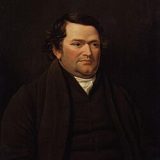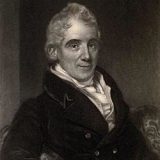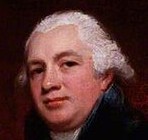Additional InformationStandards in Education – The Revised Codes The Revised Codes and Worlington School Schooling Before 1870s – Some Facts
|
Why Before the 1870sSchooling in East and West Worlington can be described as typical of other rural Devon parishes. The 1870’s can be identified as a critical decade in the evolution of schooling in England and Wales. In 1870 as the year the Government passed their first piece of legislation specifically dealing with education, namely, the Elementary Education Act 1870, also known as . The Act is considered to be a fundamental step by the government in taking responsibility for the education of the nation’s children and shaped the provision of schooling available within the parishes. One aspect of the legislation was the ambition that every parish provided schools for their local children and that the responsibility for the provision at a local parish level was achieved by the creation of locally elected school boards. This had a major impact on schooling in East and West Worlington and lay the foundation of the school as we know it in 2025. So, let’s set the scene by explaining the parishes context and schooling prior to the 1870’s. |
Learn More: Useful WebsitesNational Schools (England and Wales Wikipedia https://en.wikipedia.org/wiki/National_school_(England_and_Wales) Exploring Oxfordshire School History Definitions and terminology. https://www.oxfordshirehistory.org.uk/public/school/diy/school_definitions.htm Schooling Before the 19th Century UK Parliament Types of school in nineteenth century England – History of Education Society https://historyofeducation.org.uk/types-of-school-in-nineteenth-century-england/ History of Education in the UK – the history of our schools colleges and universities https://www.education-uk.org/history/chapter05.html National Schools https://co-curate.ncl.ac.uk/national-schools/ Joshua Watson https://en.wikipedia.org/wiki/Joshua_Watson Monitorial System https://en.wikipedia.org/wiki/Monitorial_system Joseph Lancaster https://britishschoolsmuseum.org.uk/whats-on/joseph-lancaster/ Joseph Lancaster https://en.wikipedia.org/wiki/Joseph_Lancaster Sunday Schools https://en.wikipedia.org/wiki/Sunday_school Methodist Heritage Sunday Schools https://www.methodistheritage.org.uk/methodist-history/youth-and-education/sunday-schools/ Church of England – The Evolution of Sunday Schools The Victorian School https://www.victorianschool.co.uk/ St Luke’s Teacher Training College Exeter |
Setting the SceneIf you had been born in East or West Worlington during the 18th and early decades of the 19th Century your experience of schooling would have depended on which family you were born into. Social structure in rural Devon at that time was certainly hierarchical and this had a significant impact on the lifestyles, educational opportunities and life chances for children. Before 1885 East Worlington and West Worlington were two separate parishes, merging as a Civil Parish in that year, and merging for ecclesiastical purposes in 1919. While the parishes were adjacent to each other and had identical environmental conditions distinctions between the two were based primarily on land ownership and the role each played in the agricultural economy. During the 18th and early 19th centuries the landowners and the church in each parish were significant factors in the provision of schooling found in each parish. The greatest power and influence locally were wielded by the major landowners and the landed gentry. In West Worlington the main landowners were the Stucley family, who had a residence at Affeton Castle. In East Worlington the Earl of Portsmouth owned much of the land in the parish, and was lord of the manor, but he was an absentee landlord as he was never a resident within the parish. ‘Below’ this high status level were families known as middle class, including the clergy, tenants who paid a rent to the landlord, independent farmers who owned their own small holdings and shopkeepers and skilled tradesmen, such as the blacksmith and wheelwright, who served the local agricultural economy. However, the majority of the population in the Worlington parishes belonged to the working class, primarily agricultural labourers who performed manual work on the land. Most farm workers lived in cottages provided by landowners or tenant farmers. Life for this rural working class was difficult, with low wages, unhealthy living conditions and high infant mortality rates. While there was a small distinction between skilled labourers, like a ploughman, and unskilled manual workers, both relied on their physical labour to survive. ‘Below’ the working class was what was described as the underclass, made up of the impoverished, unemployed, or homeless who were dependent on a mix of local charity and the poor law system for survival. Educational experiences of these different societal levels were based on money, opportunity and family / cultural value placed on schooling. For example, Sir George Stucley, (1812 to 1900) was educated at Eton College and Christ Church, Oxford and the 5th Earl of Portsmouth (1825 to 1891) was educated at Rugby School and Trinity College, Cambridge, whereas for many of the working classes schooling was not an option. The basic need for survival drove children, both boys and girls, into employment either within their own household or as servants and labourers on farms run mainly by tenant farmers, farmers owning their own farms or families with professional or trade status. Compare this lack of educational opportunity and experiences of working classes and those classified as the poor, to the middle classes. For example, William Woolcombe (1787 to 1862), a child born into the Woolcombe family, his father William Woolcombe being a Rector of East Worlington. Wiliam attended Blundells School, a fee-paying school in Tiverton from 8th August 1796 until 30th June 1801, suggesting the Woolcombe family had wealth and the valued the place of education as a vital ingredient in life choices and careers. Subsequently William went on to Corpus Christi College in Oxford, matriculating 14th May 1801, aged 14, BA 1805, MA 1808, BD 1816, Fellow 1812-1819. He was ordained priest on 24th May 1812. Role of Philanthropists, Advocates and SocietiesThe national emergence of schooling in the C18th and early C19th was mainly driven individuals and charities who mainly had concerns about the poor. The following three types of schools are the main examples of the development of schools that had an impact on the development schooling that provided educational opportunities for working class and poor families. Sunday Schools Lancastrian Schools In 1808 the Royal Lancastrian Society (later the British and Foreign School Society) was created to promote schools using the Monitorial System initially promoted by Joseph Lancaster. National Schools The National Society was set up in 1811 to establish similar schools using the system of Dr. Andrew Bell, but based on the teachings of the Church of England in contrast to the non-denominational Christian instruction of the Lancastrian schools. The National Society aimed to establish a National school in every parish of England and Wales. The schools were usually next to the parish church, and named after it. This approach to creating schools in every parish certainly had an impact on the Worlingtons. |
|
|
|

The Lancastrian Movement
James Lancaster promoted the Monitorial method of schooling.

The National School Movement
Joshua Watson was a key leader in establishing the National Society.

Sunday Schools Development
Robert Raikes was a pioneer of the Sunday school movement.
